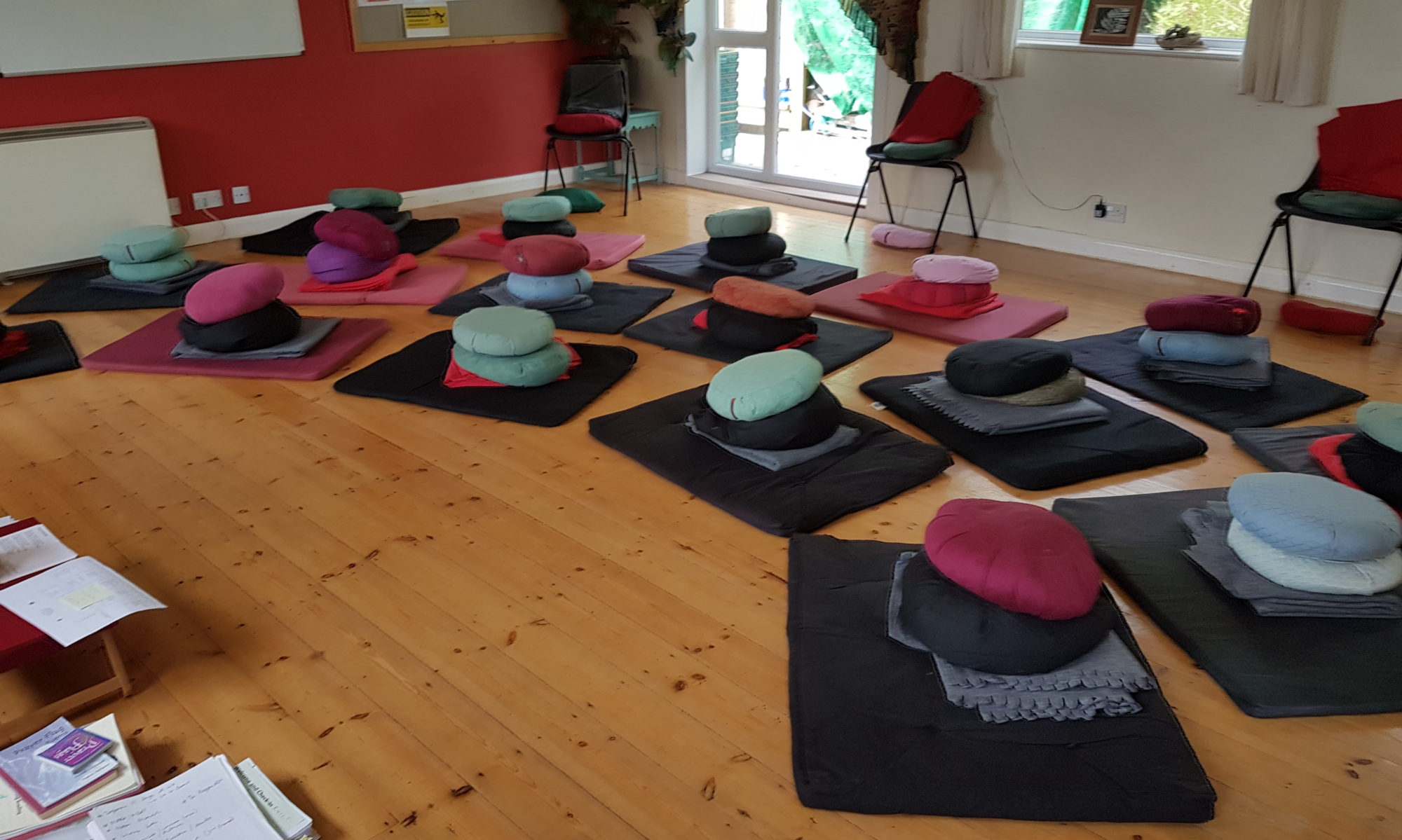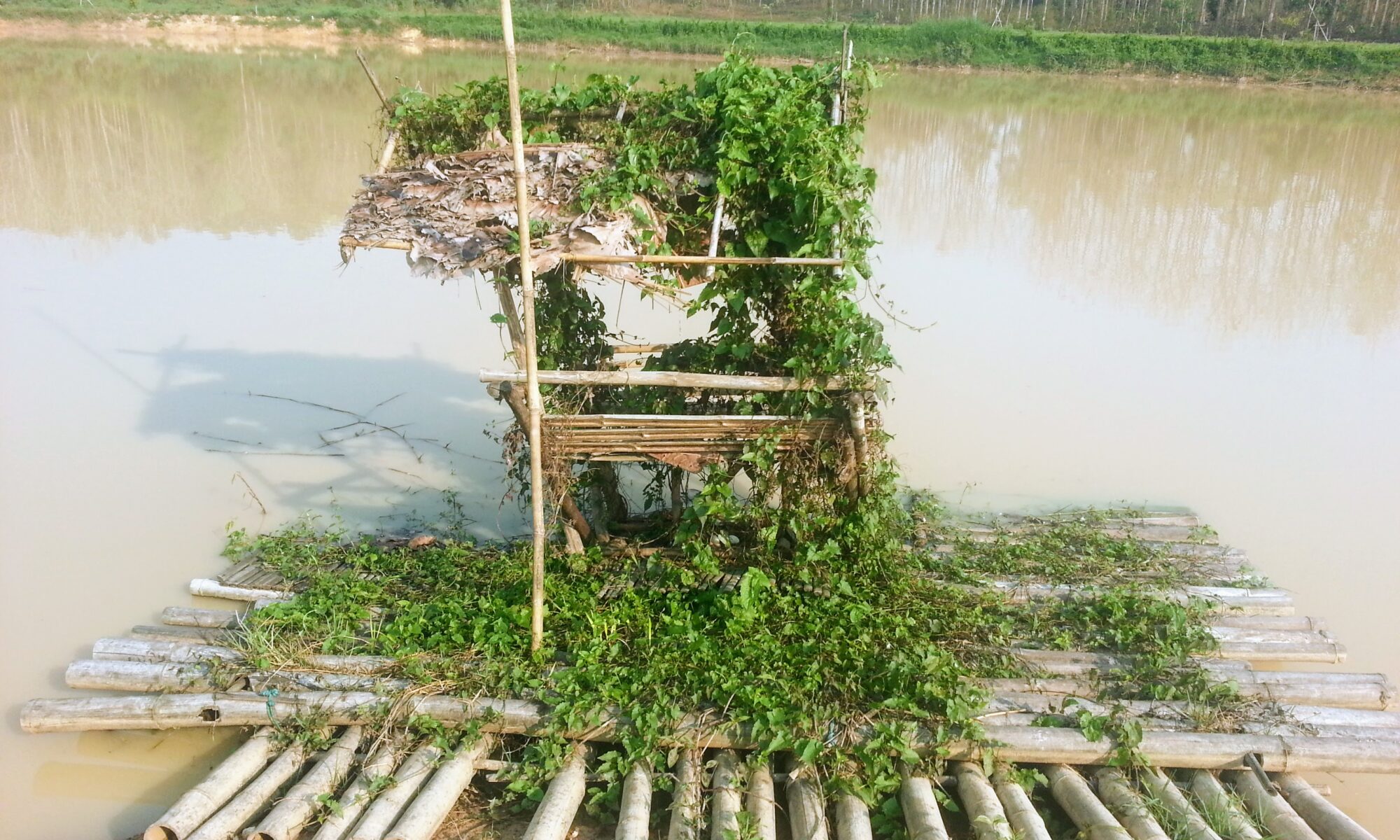An alternative perspective on the ‘Four Noble Truths’
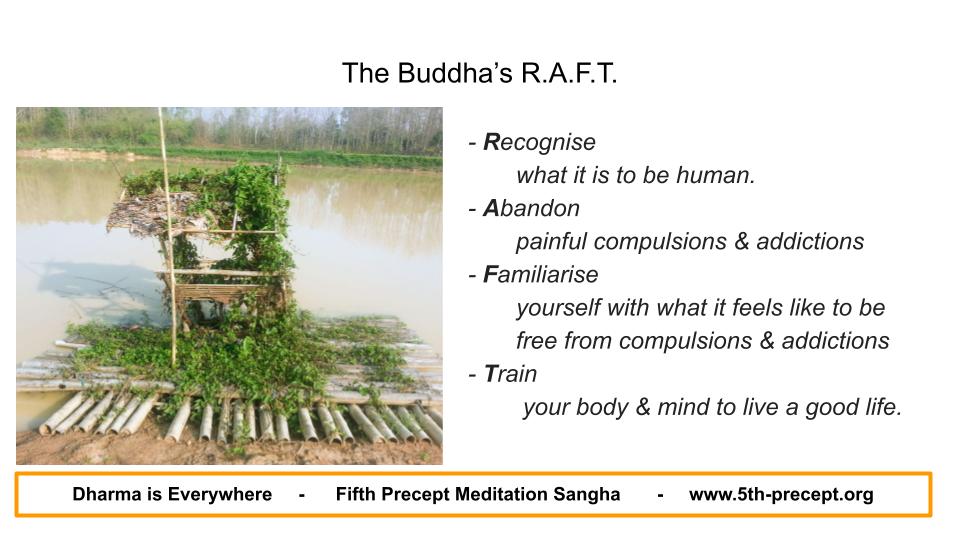
You probably know the lovely simile that the Buddha used about someone needing to cross a large expanse of dangerous water because the current shore is dubious and risky, but the further shore is secure and free from risk. He says that you would gather together whatever was needed to make a raft that would keep you safe and direct you across the water… but once you get to the security of the far shore you can leave the raft behind and continue your journey. You don’t have to drag the raft around for the rest of your life!
In the Buddha’s first talk – after he awakened to life as it really is – he shared 4 important realisations…
He proposed that the basic-pattern-of-things (Dhamma/Dharma) means that life is inherently, unavoidably and naturally painful, difficult and disappointing and suggested that we investigate and fully understand how this pain manifests and what it actually means to each and every one of us.
This was his first realisation… this was his first teaching!
He goes on to point out that much of the pain of life comes as a result of our human inclinations, our compulsions, and our preferences and aversions, which he says, can be overcome and abandoned.
He then says that it is possible for anyone to personally experience… and to personally verify the absence of these compulsions…
I would say that anyone ‘in recovery’ has shared this experience but we forget (which is the opposite of mindfulness) to remember just how much we have achieved in recovery. We forget to acknowledge and appreciate that in a Buddhist sense we have found freedom from craving, freedom from aversion and freedom from confusion.
….and lastly, the Buddha suggests that we actively engage in a programme that supports the abandonment of harmful compulsions and minimises unnecessary and avoidable pain.
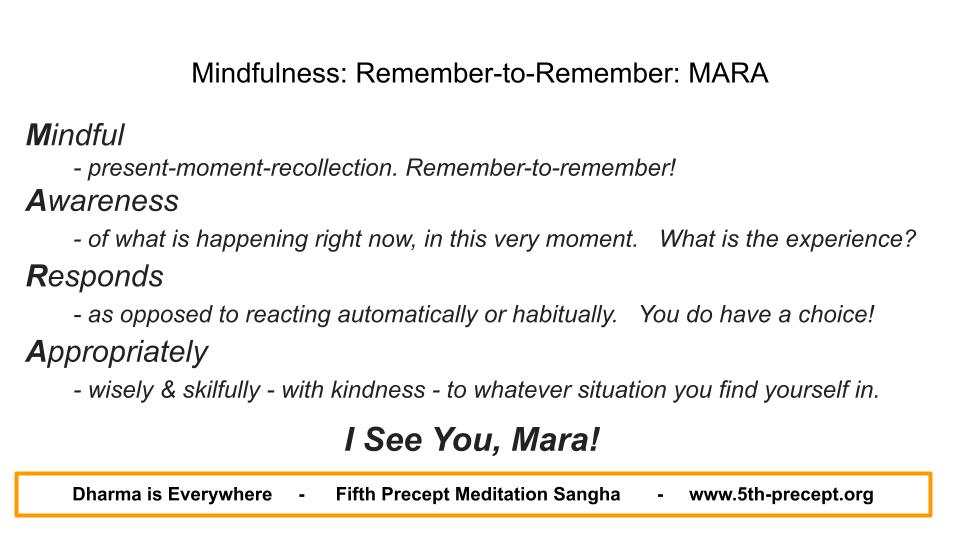
I like to describe ‘mindfulness’ as M.A.R.A.
Mindful
Awareness
Responds
Appropriately
So, the appropriate response to this basic-patterns-of-things might look like…– Recognise (realise) what it is to be human.
Vince Cullen – 1st January 2022
– Abandon painful compulsions and addictions.
– Familiarise yourself with what it feels like to be free from compulsions [craving, aversion and confusion]
– Train (teach and transform) your body and mind to live a good life.
The subject of recognising and embracing what it is to be human will be explored in the forthcoming Heart of Forgiveness interactive workshops:
For a more traditional rendering of the Buddha’s first talk see https://www.accesstoinsight.org/…/sn56/sn56.011.harv.html
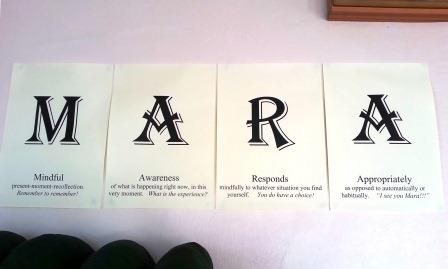
For printable M.A.R.A. poster see
https://5th-precept.org/MARA-A3-Size(July2017).pdf
